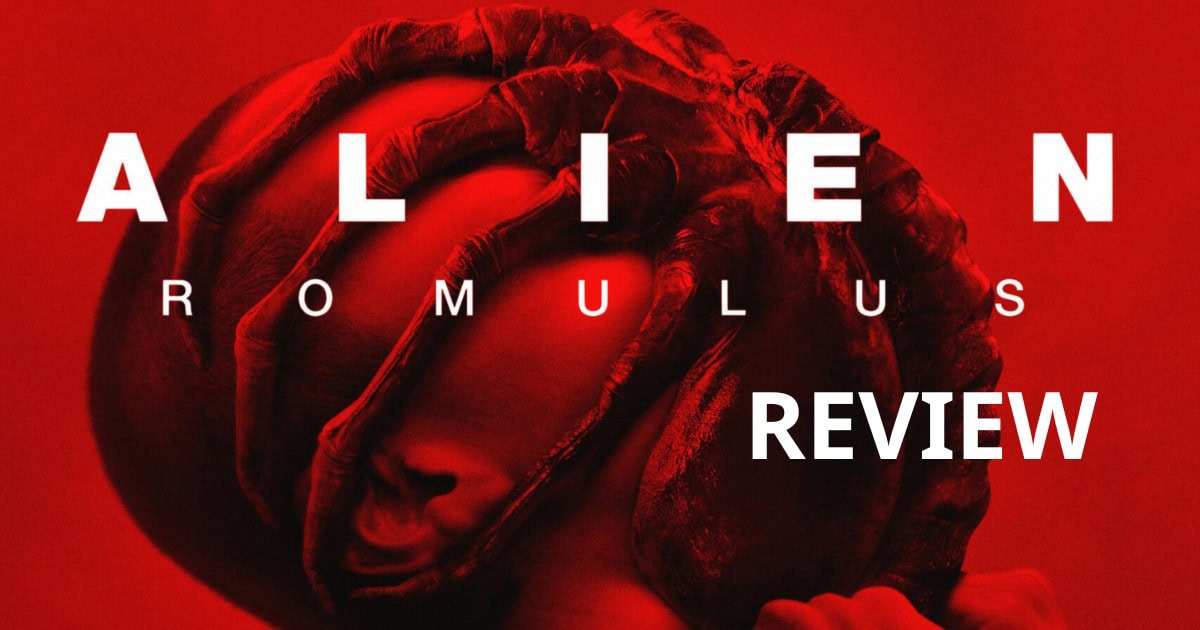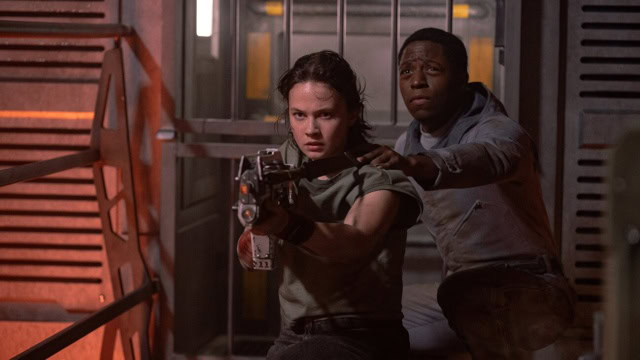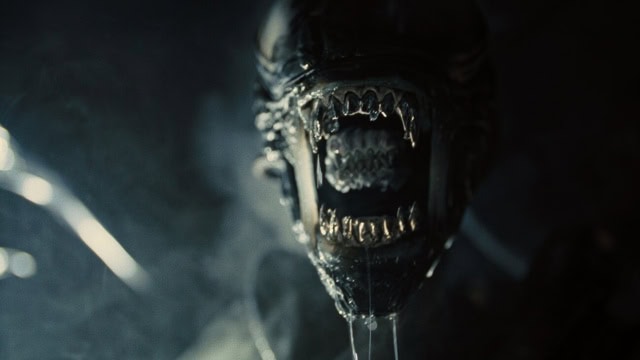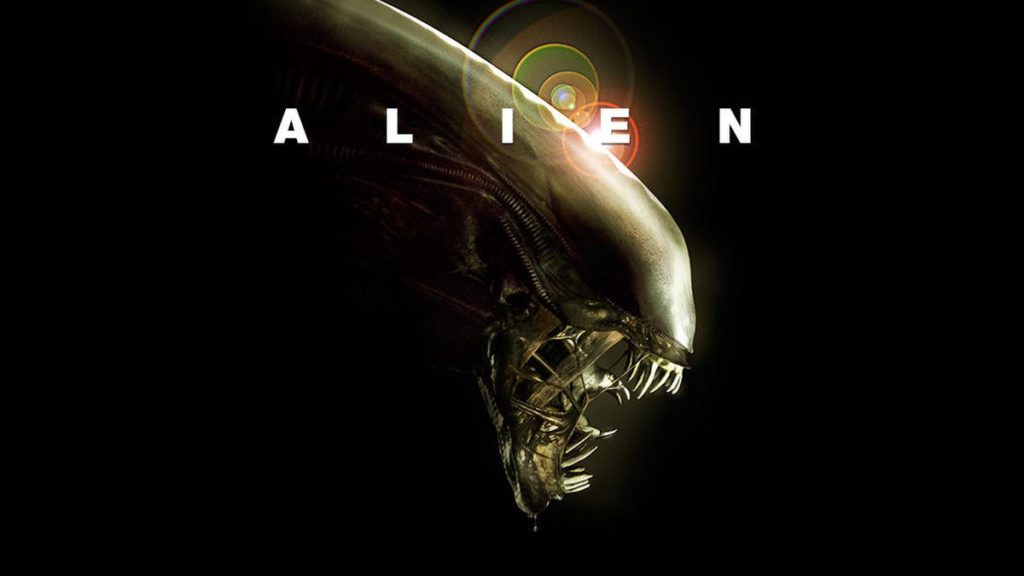‘Alien: Romulus’ Conquers Reliance On Nostalgia With Jaw-Dropping Cinematic Style

The Alien franchise is back! But did it ever really leave? Ever since the debut of Ridley Scott‘s 1979 classic, there’s been at least one new entry into the series every decade. While not all have been winners (namely the ill-fated Alien vs. Predator films and Alien: Resurrection) the series remains a reliable reservoir of sci-fi/horror. One specific thing makes Alien: Romulus different: Disney. This is the first film in the franchise after the Mouse’s acquisition of 20th Century Fox. Expectedly, in an attempt to latch onto the legacy sequel trend, Alien: Romulus is chock-full of references, callbacks, and tie-ins to nearly every entry of the series.
Sound tiresome? Well, it surely threatens to be. Thankfully, there’s another thing that makes Alien: Romulus distinct: writer-director Fede Álvarez. The burgeoning horror auteur known for the 2013 reimagining of Evil Dead as well as spearheading the Don’t Breathe duology brings a welcome spark of gnarly imagination. Directing Alien: Romulus like it’s the last film he’ll ever get to make, Fede Álvarez concocts a blend of dread-fueled horror, whacked-out mad science, and thoughtful characterization that brilliantly bursts out of the thin shell of mandated IP-mining courtesy of Disney.
[Warning: Mild spoilers for Alien: Romulus are discussed in the review below.]
Cailee Spaeny and David Jonsson lead a committed cast in Alien: Romulus
From the outset, this Alien film strikes the right tone. The lurid exteriors of space and the clunky ships that occupy it are shot in jaw-dropping manner by Galo Oliveres. As the score by Benjamin Wallfisch swells, it over-takes the audience in the same way that Jerry Goldsmith‘s work on the original film did. There’s a feeling of utter transportation in the opening moments of Alien: Romulus, as if we have somehow been allowed to view an alternate future through cinematic magic.
The feeling is supplemented by Fede Álvarez‘s wise choice to begin the story on a distinctly human note, introducing us to miner Rain Carradine (Cailee Spaeny) and her adopted android brother Andy (David Jonsson) on the grungy colony of Jackson’s Star.

Just as it seems like Rain and Andy are about to make their way to a better life, the Weyland-Yutani corporation forcefully extends Rain’s completed mining contract another few years. Not about to accept her fate, Rain assembles a rag-tag crew including of her ex-boyfriend Tyler (Archie Renaux), Tyler’s sister Kay (Isabela Merced) and cousin Bjorn (Spike Fearn), as well as Bjorn’s girlfriend/pilot Navarro (Aileen Wu), to escape to somewhere better. To assist in their journey, they’ll need some supplies. They decide to stop off at an abandoned outpost, broken up into two stations: Remus and Romulus. Their pit stop may become their final destination, as the infamous xenomorphs awaken, ready to raise all manner of hell on our plucky young adults.
Fede Álvarez and longtime co-writer Rodo Sayagues have a way of turning archetypical characters into lived-in human beings. This is helped in no small part by the performances. On paper, a character like Isabela Merced‘s would be a throwaway lamb to the slaughter type. By placing her front-and-center in many set pieces and allowing her the space to show the anguish of her situation, she resembles something of a modern scream queen.
Moreover, other characters seemingly marked for the death, like Tyler and Bjorn, rise above genre trappings by exuding a genuine sense of panic, often resulting in arguments. This isn’t a movie where “characters making dumb decisions” is a valid complaint because the cast and script make their parts feel as lived-in as the extravagantly dirty production design.
Cailee Spaeny and David Jonsson are the real stars here, though. Rain mirrors the maternal figure of Sigourney Weaver‘s Ellen Ripley as a young woman trying to take care of a brother who doesn’t process the world like the average man. David Jonsson is unreal in this, showing tremendous heart through a twitchy, constantly shifting performance. As the plot strains their relationship, their deep connection is felt first and foremost, giving an anchor, an emotional hook that these movies have not had in a very long time.
Assembling this cast together, Fede Álvarez simply perfects what the first act of an Alien movie should be. As the crew explores the derelict spacecrafts, deep red lighting and evidence of scientific experiments create a chilling atmosphere. Alien: Romulus enjoys shredding the audience’s nerves til there’s nothing left, building suspense to the reveal of the facehuggers, and subsequently, the xenomorph aliens that not only shows a lot of restraint, that it gets tremendous pay off when the adventurers turn into prey. It’s a shame, then, that Alien: Romulus cedes so much of its middle chunk to lame franchise tie-ins.
Alien: Romulus and the franchise problem
About midway through Alien: Romulus, the film makes the ghoulish (and likely studio-mandated) choice to use CGI technology to revive a long-dead actor to reprise their iconic role. No further specifics will be given other than that it’s wholly unnecessary and immediately stops the movie dead in its tracks. It brings up a disturbing ethical dilemma that the likes of Rogue One: A Star Wars Story and The Flash have been rightfully criticized for.
What makes it so disappointing is that it’s unnecessary. That character’s position could’ve been replaced in any number of ways, preferably one more thematically relevant than denying the dead of their rest. From that moment onward, it’s a struggle between the vision of Fede Álvarez and reminding audiences that this is, indeed, an Alien movie.

For every bravura scare, there’s a repeated line around the corner. Damningly, the movie goes through great pains to position its point in the Alien timeline, as well as homaging every. Single. Movie. In the series. Fede Álvarez and Rodo Sayagues write themselves into a corner, unwilling, or perhaps unable, to tread a truly new path without rocking the boat. Sure, it’s cool to see how things connect, but these are aspects that a discerning viewer would be able to figure out for themselves. It diminishes a great deal of the mystery.
That’s not always a bad thing. Two of my favorite films in the franchise are Prometheus and Alien: Covenant for recontextualizing the original film as a smaller part of a much wider mythology. By attempting to give nods to every film in the series, Alien: Romulus threatens to turn itself into a cheap haunted house tour through the world of Alien, whilst also cheapening what came before. The most egregious comes when after one of the film’s biggest set-pieces, an absolute face melter featuring zero gravity, a character repeats a line from Aliens. It’s deflating, to say the least.
Fede Álvarez’s mad genius wins out
At the end of the day, what works about Alien: Romulus really, really works. Throughout the film, Fede Álvarez weaves in themes of siblinghood, corporate overreach, and unethical experimentation. These themes come to a crescendo in a last 15 or so minute that ditches the reverence for the franchise and conjures up something entirely new. Fede Álvarez lets go of his restraints, giving us a truly sickening set of images that imply a much deeper thematic reading of the film that I’m hungry to explore next. It’s a Hail Mary that affirms that Alien: Romulus may have been a worthwhile endeavor after all.
I’ll do it one better: Alien: Romulus is a great film that works in spite of its nostalgic trappings. This is a movie that so clearly wants to chart its our course, with a presumed mandate to adhere to guidelines. But you can’t hide this level of technical pizzazz and passion. Alien: Romulus, if nothing else, suggests that Fede Álvarez might be the right man to carry the torch of this franchise forward. Hopefully, this is only the start of Fede Álvarez making his mark on an iconic series. Next time, though, let’s make sure to focus on the story at hand rather than stories past.
Alien: Romulus is now playing in theaters. What did you think of the film? Let us know on social media @mycosmiccircus!
Alien Review: A Fantastic Sci-Fi Horror Classic



